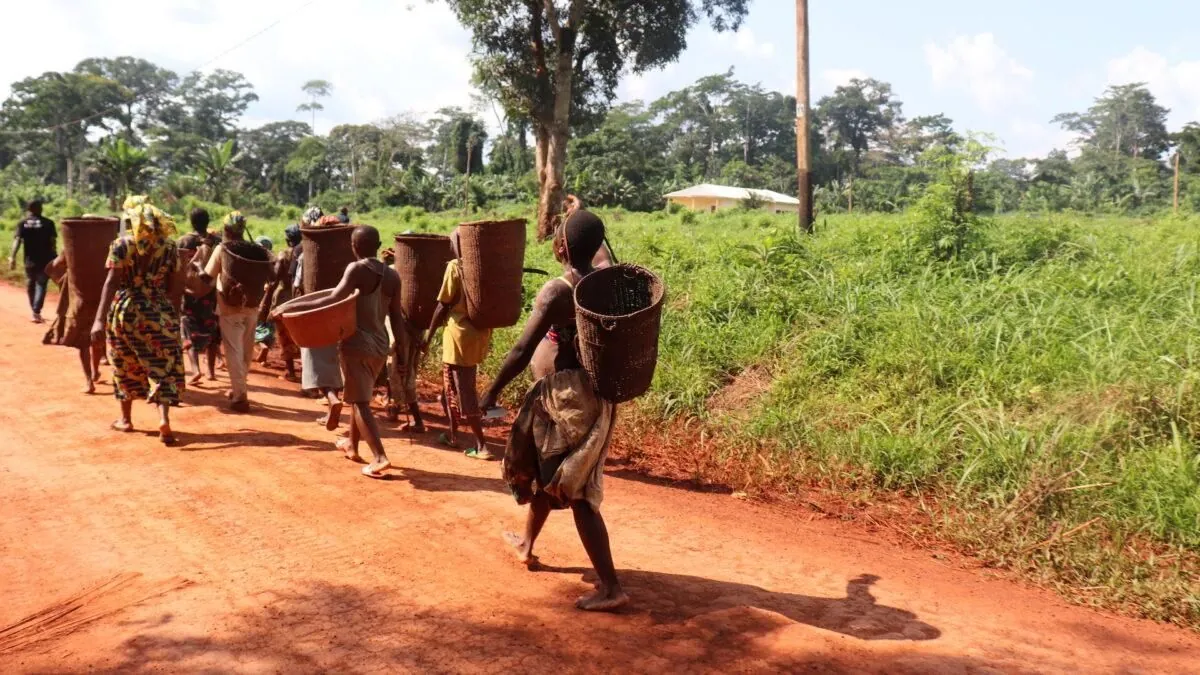In the heart of Cameroon's lush forests, the Baka and Bagyieli Indigenous communities face an unprecedented challenge. Forced from their ancestral homes, these groups now grapple with the complexities of modern citizenship, highlighting a growing crisis of statelessness in the region.
The Baka, known for their extensive knowledge of forest ecosystems and medicinal plants, have lived harmoniously in the Congo Basin for generations. This vast rainforest, second only to the Amazon in size, has been their home and provider. However, the encroachment of mining, logging, and conservation areas has disrupted their traditional way of life.
For the estimated 120,000 members of these communities, the lack of birth certificates poses a significant barrier to integration and opportunity. Without this crucial document, individuals cannot obtain national identity cards, effectively excluding them from full citizenship benefits.
Banmi Emmanuel Dingha, chairman of the Foreign Affairs Committee of Cameroon's National Assembly, emphasizes the importance of birth registration: "How can you identify yourself as Cameroonian without it?" This document is essential for accessing education, healthcare, and employment opportunities.
The issue extends beyond Cameroon's borders. The Baka people are found in several Central African countries, including Congo, Central African Republic, Gabon, and Equatorial Guinea. Their nomadic lifestyle, which often involves crossing international borders in search of food and game, further complicates their legal status.
In response to this crisis, Cameroon's parliament recently passed a bill to accede to two United Nations conventions on statelessness. This move aligns with a broader commitment by African nations to address nationality rights and eradicate statelessness across the continent.
The challenges faced by the Baka and Bagyieli are part of a larger global issue. The United Nations High Commissioner for Refugees estimates that at least 4.2 million people worldwide are stateless, though the actual number may be significantly higher.
"Lives were better when we were in the forest."
For many Baka children, the lack of documentation limits their future prospects. Francis, an 11-year-old with aspirations to become a nurse, may find his dreams unfulfilled without a birth certificate. His father, Bertrand Akomi, experienced this firsthand when denied employment by a lumber company due to lack of identification.
The situation is similar for the Bagyieli in the southern Campo region. Henri Lema, a hunter from Nazareth village, expresses frustration with the frequent harassment he faces from authorities when traveling without an ID card.
Cameroon's government is taking steps to address these issues. Simplice Nguiamba, a senior official, outlines efforts focused on awareness-raising, advocacy, and support for the Bagyieli to access nationality documents.
The country's ongoing separatist crisis in the Anglophone regions and the Boko Haram insurgency in the Far North have exacerbated the problem of statelessness. Internal displacement has resulted in many Cameroonians losing their identification documents, further complicating the situation.
As Cameroon, with its diverse population of over 27 million people and more than 250 ethnic groups, continues to grapple with these challenges, the plight of its Indigenous communities serves as a stark reminder of the complexities surrounding citizenship and identity in the modern world.
